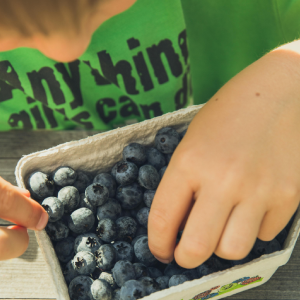
A child's diet is one of the most important issues that concerns every parent. How do you ensure your little one's healthy nutrition and development? This question often arises, and the answer is not so simple. But don't worry! In this article, we will discuss in detail all the important aspects of a child's diet that will help you ensure your child's health and well-being.
Imagine your child's body as a rapidly growing garden. This garden needs the right amount of water, sunlight, and nutrients to thrive and develop. The same goes for a child's diet - it should be balanced and diverse to provide all the necessary elements for growth and development.
Balanced nutrition is the foundation on which a child's health is built. It ensures:
Physical growth and development Strengthening of the immune system Cognitive development Emotional stability Formation of healthy bones and teeth
A child's diet should include all the necessary nutrients in the right proportion. This means that you should provide a variety of foods that include proteins, carbohydrates, fats, vitamins, and minerals.
Remember that a child's diet is not just about the number of calories - it's about providing quality food that promotes optimal growth and development. As one wise saying goes: "You are what you eat". This is especially important for children who are still in the process of formation.
A child's diet should include five main food groups. Each of them has a unique role in a child's health. Let's discuss each of them in detail:
Fruits and Vegetables Fruits and vegetables are the best sources of vitamins, minerals, and fiber. They help strengthen the immune system, promote healthy digestion, and contribute to overall good health. Imagine these foods as protective soldiers for a child's body, defending it against diseases.
Recommendation: Try to include at least 5 portions of fruits and vegetables in your child's diet daily. Remember that variety is important - the more colorful fruits and vegetables you provide, the better!
Recommendation: Choose whole grain products such as whole grain bread, brown rice, and oatmeal. They contain more nutrients and fiber than processed grains.
Recommendation: Try to ensure that your child consumes 2-3 servings of dairy products daily. If your child can't tolerate milk, there are alternatives such as calcium-enriched soy milk.
Recommendation: Ensure that your child gets enough protein daily. This can be chicken, fish, eggs, or legumes for vegetarians.
Recommendation: Choose healthy fats such as olive oil, avocado, and nuts. Avoid trans fats and limit the intake of saturated fats.
A child's diet should include foods from all these groups daily. This ensures that your little one is getting all the necessary nutrients for optimal growth and development. Remember that balance is key - no food group is more important than another. They all work together to create a healthy and happy child.